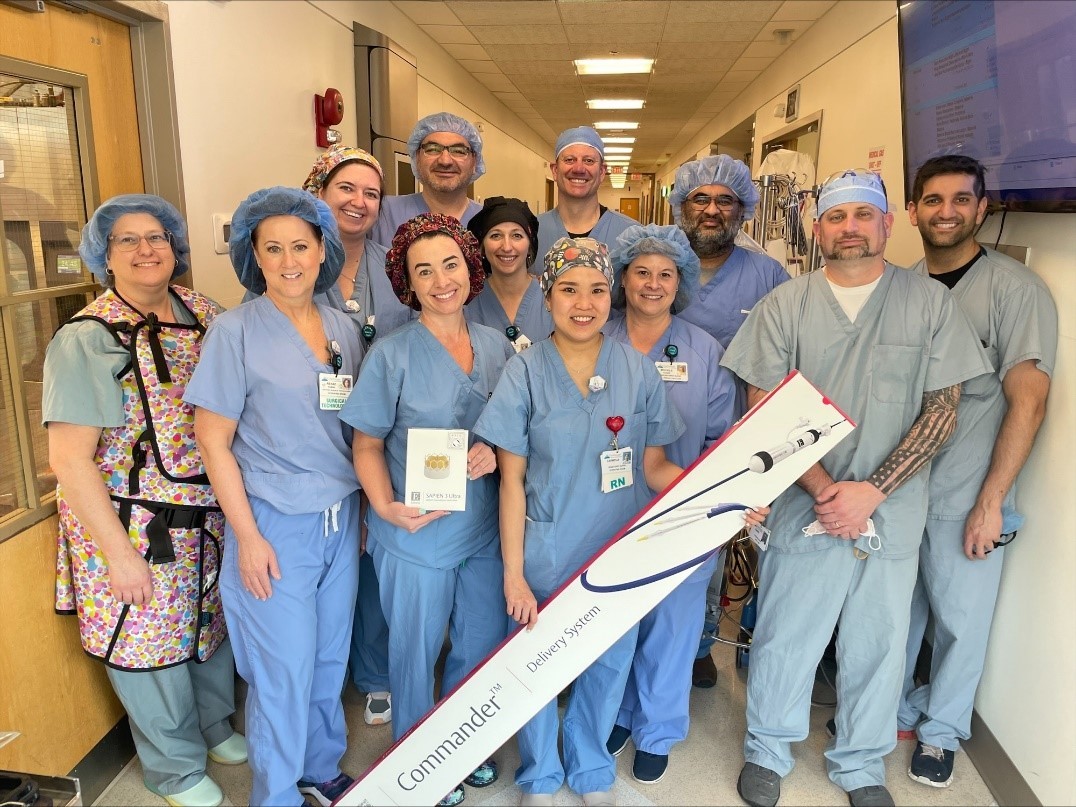CONEMAUGH HEALTH SYSTEM - ONE OF TWO PENNSYLVANIA HOSPITALS IMPLANTING NEXT-GENERATION HEART VALVES
April 7, 2023

Conemaugh Memorial Medical Center announced today that it is one of only two hospitals in Pennsylvania to implant the Edwards SAPIEN 3 Ultra RESILIA Heart Valve, the latest technology in transcatheter aortic valve replacement (TAVR). The Structural Heart team led by Dr. Savas Mavridis, Dr. Amanpreet Sherwal, and Dr. Dinesh Sharma performed the procedure.
TAVR is a minimally invasive approach to aortic valve replacement surgery for patients with severe, symptomatic aortic stenosis (sSAS). Doctors insert a catheter in an artery, usually accessed through the groin, and guide it into the heart, implanting a new man-made aortic heart valve inside the diseased valve.
“Conemaugh Health System is staying ahead of the curve by offering our patients the latest and best valve technology available,” said Dr. Mavridis. “We are thrilled to have been selected for the initial release of the next-generation valve technology. This will improve the lives of many people in our community.”
Aortic stenosis occurs when the aortic valve opening narrows and restricts normal blood flow. The leaflets, flaps of tissue that open and close the valves, calcify and become stiff over time. This puts stress on the heart as it pumps harder to compensate and increases the risk of heart failure.
Studies have shown that while successful, traditional bioprosthetic valves can deteriorate over time because of calcium buildup. The SAPIEN 3 Ultra RESILIA is the only transcatheter heart valve with dry tissue storage. Combining this with its advanced calcium-blocking technology, the valve provides a more durable tissue for improved valve longevity.
“Because aortic valve replacement is the only effective treatment option for sSAS, the TAVR approach is significant because it removes the need to open the chest to replace the valve,” said Dr. Amanpreet Sherwal. “This minimally invasive approach and anti-calcification design will help improve outcomes, greatly reduce the need for future interventions, and allow patients to get back to daily life sooner.”
